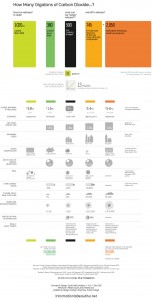If you want to know why the US doesn’t take any significant action on climate change, look no further than the House of Representatives subcommittee on Climate Change. Its new chair is Rep Chris Stewart, a Republican from Utah who does not believe in man-made climate change. This is also a guy who thinks the EPA should be eliminated because it ‘thwarts energy development.’ Yeah, just ask China how that’s going. I for one believe that sacrificing long term growth and prosperity in favor of short term profits is NOT pro-business, and am disgusted at the Republican party as a whole for taking that stance while at the same time pretending to be pro-business. This short-term perspective is nothing more than personal greed.
When virtually all climate scientists believe in man-made climate change…to have the chair of this subcommittee oppose that view is an outright rejection of science and logic. No wonder Congress can’t get anything done.
(via Salon)



